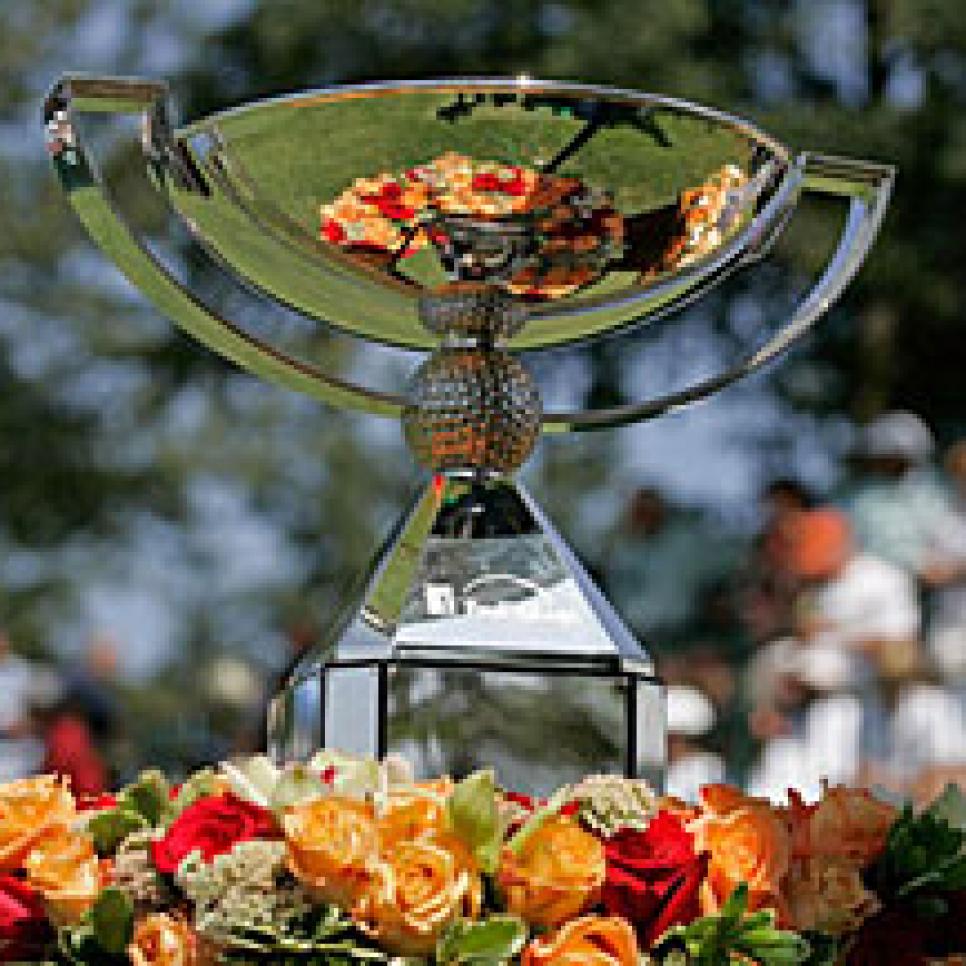News
Nice Try, But Not Quite

Tiger Woods' sixth victory of 2009 has made life a bit more complicated for the PGA Tour's favorite laboratory rat, the FedEx Cup playoff system. If Woods wins twice as many tournaments as anyone else and still doesn't claim the $10 million jackpot, can he file a grievance with the Better Business Bureau?
We've finally found a rival for Woods: the tour mathematician. Changes in this year's postseason format reduced Tiger's lead from 1,504 points to 250 after his eight-stroke victory in Chicago, which is a funny way to reward a guy for lapping an entire field. Woods could finish fifth at the Tour Championship and lose the overall title to Jim Furyk, who hasn't won anywhere this year, even if Furyk doesn't win next week, either.
The harder Camp Ponte Vedra tries to make this thing interesting, or at least slightly suspenseful, the bigger mess it becomes. Some of that can be blamed on Woods, whose dominance makes the entire postseason exercise somewhat pointless, but in failing on its first three attempts to launch a product that combines excitement and credibility, the tour honchos need to come to terms with reality.
Pro golf does not lend itself to a playoff format. The current model is flawed both inherently and procedurally and, thus, has virtually no chance of succeeding. Without the win-or-go-home scenario that defines playoff competition in team sports, the FedEx Cup will never generate widespread public interest or earn critical acclaim.
It's just a ton of guys playing for more money, eliminated because they failed to qualify for the next stage, not because they were beaten. There are no head-to-head matchups, no conference finals, no agony of defeat.
The other big problem is the season itself, which features four major championships spaced nicely over a five-month period. Team sports don't award grand prizes during the regular season—it's all about positioning for the playoffs. In golf, the World Series is played in April, the Super Bowl in June, the World Cup in July and the Stanley Cup in August. It's a good system, but since the tour holds no jurisdiction over any of the majors, it feels the need to conceive its own artificially sweetened projects and sell them with self-proclaimed prestige.
In the case of the FedEx Cup, that means 125 players are admitted to a four-event postseason, all at tournaments that existed before the playoffs were launched. This same-site factor does nothing to help the tour distinguish its year-end dollar derby from the rest of the schedule. The bloated number of participants, meanwhile, creates the impossible task of trying to balance regular-season achievement with postseason volatility.
Heath Slocum made the playoffs by a whisker, finishing 124th largely because of a T-3 at the Mayakoba Golf Classic, an opposite-field event in Mexico back in March. He did nothing in the few premium-field events he got into and missed the cut at the U.S. Open, his only start at a major. The same week Slocum was picking up 82.5 FedEx Cup points in Mexico—almost a quarter of his total for the season—Geoff Ogilvy was rolling to his second triumph in seven weeks at the WGC-Accenture Match Play, a gathering of the game's best players.
Seven months later, Slocum, whose victory at the Barclays remains his only strong performance all year at the game's highest level, has a very good shot at the $10 million, while Ogilvy doesn't. Although Slocum was merely taking advantage of the opportunity presented to him at Liberty National, the fact that No. 124 could even get into the postseason brings logic to its knees.
No more than 30 players should be eligible for the Super Duper Payoff at the start of the process, not the end. Heath Slocum and the other 94 non-qualifiers can still play in the events and compete for prize money, but only the top 30 would continue to collect points. No playoff system works without a considerable amount of exclusivity. You should have to earn your way in, especially when the size of the prize is so enormous, especially in a game where the parameters of individual success are so clearly defined.
I won't be pulling for Woods or anyone else next week in Atlanta. My only rooting interest is also clearly defined. It falls on the side of principle.